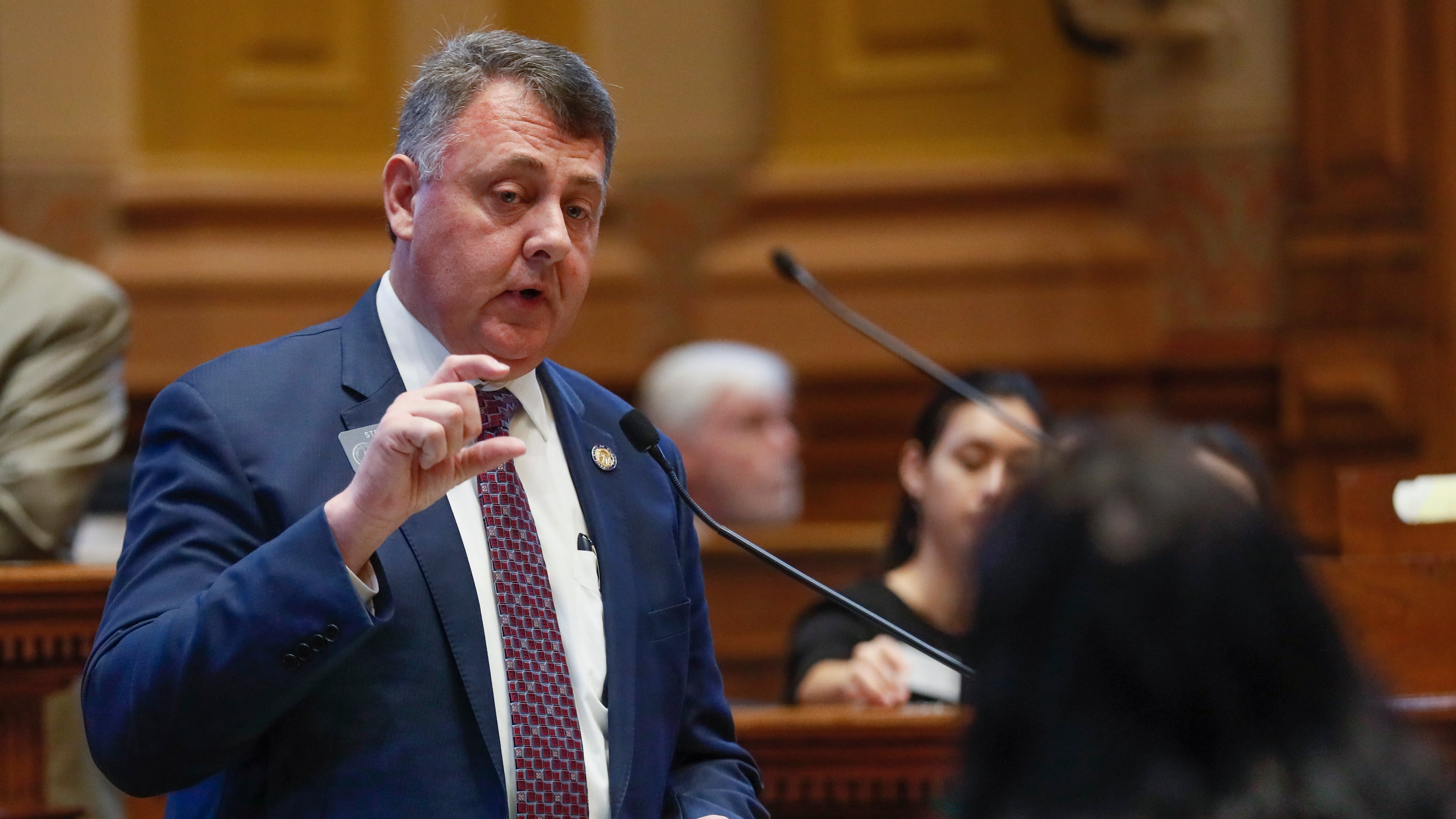Georgia Senate panel backs new ban on fundraising during legislative session

A Georgia Senate panel moved Monday to blunt some of the criticism Republicans have been getting for creating new fundraising committees for legislative leaders, amending an ethics bill to ban those funds from raising campaign money from lobbyists and special interests during General Assembly sessions.
If passed, the amendment would also have an impact on the House Republican caucus trust, which now raises money during the session.
The House last week gave final approval to legislation that would create new committees that would give Gov. Brian Kemp and legislative leaders the ability to raise unlimited campaign money during General Assembly sessions.
Senate Bill 221 passed largely along party lines, with Democrats saying it could increase the likelihood that Statehouse lobbyists would be asked to give money at the same time they were trying to persuade lawmakers to pass legislation.
On Monday, Senate Majority Whip Steve Gooch, R-Dahlonega, sought to amend House Bill 333, a separate measure requested by the state ethics commission, to add a provision outlawing committees or funds connected to lawmakers from raising contributions during a session.
“There are PACs that exist that can accept contributions (during the session),” Gooch said. “This closes the loophole we have discussed in the past.”
The Senate Ethics Committee approved the bill, with the amendment.
State lawmakers for decades have been banned from taking campaign contributions from lobbyists and special interests during the session. Long ago, the General Assembly said it looked bad for a lawmaker to take a check at the same time he or she is considering legislation or funding that the donor may be trying to get approved or killed.
But caucus funds that raise money to support GOP candidates, such as the House Republican Trust and its Senate counterpart, are legally allowed to take money during sessions. The Senate fund used to raise money during the session, but Senate rules in recent years prohibited it.
SB 221 — which is awaiting Kemp’s signature — would let a governor, lieutenant governor, a party’s nominee for either of those positions, and House and Senate Republican and Democratic leaders create such committees, which would raise money either for their own races or to try to affect other contests.
Statewide candidates are allowed to raise about $18,000 per election cycle if they make a runoff — $7,100 in legislative races — from individual donors.
Limits on how much donors could give to the committees would not apply, nor do they for caucus trusts. So contributors — typically lobbyists, industry associations or businesses interested in legislation or state funding — can give as much as they like.
Old-timers at the Capitol remember when lobbyists seeking to pass legislation could go onto the legislative chamber floors or into ante rooms and buttonhole lawmakers. Back in the day, lawmakers regularly held fundraisers during the session.
In the early 1990s, lawmakers made it illegal for lobbyists and others to give campaign contributions to legislators during the session because, besides the possibility for corruption, it just didn’t look good.
But what went unsaid was that caucus trusts and other groups involved in the political process could still legally accept donations during the session, and they accept “dark money” — money where donors aren’t disclosed.
A review of campaign contribution reports last week by The Atlanta Journal-Constitution showed over the last five years, the House and Senate GOP caucus funds — which are controlled by House and Senate leadership — reported receiving more than $300,000 during legislative sessions, including big money from businesses and associations who had lobbyists working on bills during those sessions. The Senate trust has since discontinued the practice.
Unless Gooch’s amendment wins final passage, the new leadership committees would likewise be able to solicit and take unlimited contributions from lobbyists and special interests during the session.
The story so far
The Atlanta Journal-Constitution reported in February that the Senate passed — along party lines — Senate Bill 221 to create a new kind of fundraising committee for state and legislative leaders, over concerns it would spur more money going to lawmakers during legislative sessions. The AJC reported last week that Republican House and Senate caucuses had raised $300,000 from lobbyists and special interests during legislative sessions — while they were passing bills important to those donors — in the past five years. The House passed the bill, but Senate leaders Monday called for a ban on in-session contributions to avoid the appearance of a quid pro quo between lawmakers and lobbyists.



